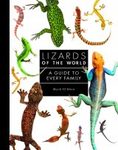About this book
This book aims to be a comprehensive review of the literature on the conservation genetics of the New World crocodilians, from the biological and demographical aspects of the living species to the application of molecular techniques for conservation purposes. It covers the current status of the molecular genetics applied to phylogenetics, phylogeography, diversity, kinship and mating system, and hybridization, as well its implications for decision making with regards to the conservation of these species at academic and governmental levels. Conservation Genetics of New World Crocodilians can be used as a guide for graduate and undergraduate students to understand how conservation genetics techniques are carried out and how they can help preserve not only crocodilians but also other living species.
Contents
Preface
Chapter 1. Geographic distribution, habitat, reproduction and conservation status of crocodilians in the Americas
Chapter 2. Molecular markers applied to conservation genetics of American crocodilians
Chapter 3. Molecular Phylogenetics of the New World Crocodylia
Chapter 4. Biogeography and comparative phylogeography of New World Crocodilians
Chapter 5. Genetic diversity of New World crocodilians
Chapter 6. Crocodilians are promiscuous but not to the benefit of heterozygosity
Chapter 7. Hybridization and speciation among New World crocodilians species
Chapter 8. Crocodilian Genome Advances
Chapter 9. How genetic tools can help crocodilians' management and governance
Chapter 10. Perspectives and final considerations about the molecular ecology of New World crocodilians
Index
Customer Reviews
Biography
Rodrigo Barban Zucoloto, Universidade Federal da Bahia, Brazil, has a Graduate degree in Biological Sciences from the University of Sao Paulo (1994), Master of Sciences (Nuclear Energy in Agriculture) from the University of Sao Paulo (1999) and Doctor of Sciences (Nuclear Energy in Agriculture) from the University of Sao Paulo (2003). Currently Associate Professor at Federal University of Bahia. He has experience in Genetics, with an emphasis in conservation genetics of Brazilian crocodilians, especially the broad-snouted caiman (Caiman latirostris).
Patricia Susana Amavet, Universidad Nacional del Litoral, Argentina, has a PhD in Biological Sciences (2009) from the University of Buenos Aires. Currently, she is a Professor of Genetics and Population Genetics at the University National of Litoral. She is a CONICET Researcher since 2010, coordinator of the Genetics Laboratory in UNL, and supervisor of three doctoral students and of one postdoc. She has extensive experience in Conservation Genetics of wild species, especially the Broad-snouted caiman (Caiman latirostris), and she is a member of the Crocodile Specialists Group (SSC/IUCN) since 2002. Her research works include the topics of molecular ecology, population genetics, mating system studies, and phylogeographic analyses, mainly in reptiles and amphibians.
Luciano Martins Verdade, Universidade de São Paulo, Brazil, is an Agronomist and has a Master in Agronomy from the University of Sao Paulo (1985 and 1992 respectively) and PhD in Wildlife Ecology and Conservation from the University of Florida (1997). He is currently Associate Professor III of the Center for Nuclear Energy in Agriculture (CENA), University of São Paulo (USP) and member of the coordination of the Biota / FAPESP Program, the Sao Paulo Biodiversity Commission and the Species Survival Commission / IUCN, and Information and Management System for Protected Areas (SIGAP) / Secretariat of Environment of the State of Sao Paulo (SMA / SP). His research is focused on Applied Evolutionary Ecology with special interest in fauna management in agricultural landscapes and adaptive processes of vertebrates to anthropic alterations.
Izeni Pires Farias, Universidade Federal do Amazonas, Brazil, has a Bachelor's degree in Biological Sciences from the Federal University of Amazonas (1987), Master's Degree in Freshwater Biology and Inner Fishing from the National Institute of Amazonian Research (1992), and PhD in Biological Sciences (Molecular Genetics) from Federal University of Pará (2000). She was a postdoctoral fellow (CNPq 2015) at Brigham Young University and is currently Full Professor at the Federal University of Amazonas where she coordinates the Laboratory of Evolution and Animal Genetics (LEGAL). She has experience in genetics, with emphasis on population genetics, conservation genetics, molecular ecology, and phylogeography of Amazonian organisms.



















![Reptiles Récoltés au Congo par le Dr. H. Schouteden et M. G.-F. de Witte [Reptiles Collected in the Congo by Dr. H. Schouteden and M. G.-F. de Witte]](http://mediacdn.nhbs.com/jackets/jackets_resizer_medium/14/148319.jpg?height=150&width=115)
















